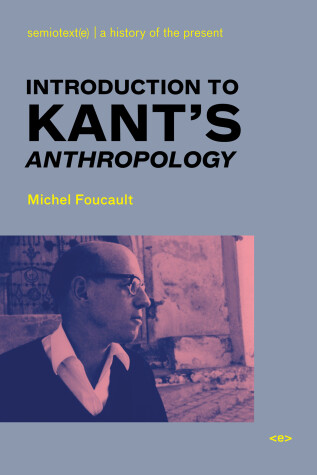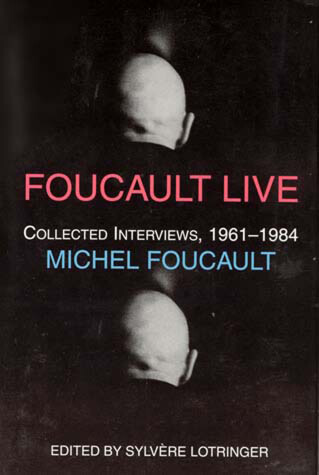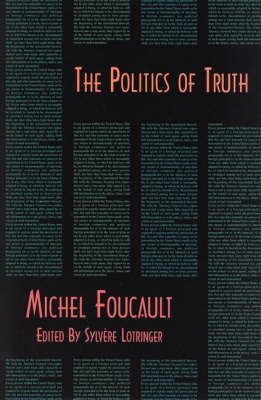Semiotext(e) / Foreign Agents
3 total works
This introduction and commentary to Kant's least discussed work, Anthropology from a Pragmatic Point of View, is the dissertation that Michel Foucault presented in 1961 as his doctoral thesis. It has remained unpublished, in any language, until now.
In his exegesis and critical interpretation of Kant's Anthropology, Foucault raises the question of the relation between psychology and anthropology, and how they are affected by time. Though a Kantian “critique of the anthropological slumber,” Foucault warns against the dangers of treating psychology as a new metaphysics, explores the possibilities of studying man empirically, and reflects on the nature of time, art and technique, self-perception, and language. Extending Kant's suggestion that any empirical knowledge of man is inextricably tied up with language, Foucault asserts that man is a world citizen insofar as he speaks. For both Kant and Foucault, anthropology concerns not the human animal or self-consciousness but, rather, involves the questioning of the limits of human knowledge and concrete existence.
This long-unknown text is a valuable contribution not only to a scholarly appreciation of Kant's work but as the first outline of what would later become Foucault's own frame of reference within the history of philosophy. It is thus a definitive statement of Foucault's relation to Kant as well as Foucault's relation to the critical tradition of philosophy. By going to the heart of the debate on structuralist anthropology and the status of the human sciences in relation to finitude, Foucault also creates something of a prologue to his foundational The Order of Things.
Michel Foucault (1926–84) is widely considered to be one of the most important academic voices of the twentieth century and has proven influential across disciplines.
Currently in its fourth printing, Foucault Live is the most accessible and exhaustive introduction to Foucault's thought to date. Composed of every extant interview made by Foucault from the mid-60s until his death in 1984, Foucault Live sheds new light on the philosopher's ideas about friendship, the intent behind his classical studies, while clarifying many of the professional and popular misinterpretations of his ideas over the course of his career. As Gilles Deleuze noted, "the interviews in this book go much further than anything Foucault ever wrote, and they are indispensable in understanding his life work." Most notably, Foucault Live includes interviews he made with the gay underground press during his stays in America during the 1970s. In them, Foucault suggests that homosexuality presents a new paradigm for ways of living beyond the predictable, binary couple. All of the philosopher's interests, from madness and delinquency to film and sexuality, and their resultant writings, are probed by knowledgeable critics and journalists. After reading this book, the reader can explore key notions such as episteme, savoir and connaissance, archeology, and archive, without the knitted brow that plagued Foucault's public when he was alive. This is the guide to Foucault's life as an agent provocateur in the world of philosophy and scholarship.
Ranging from reflections on the Enlightenment and revolution to a consideration of the Frankfurt School, this collection offers insight into the topics preoccupying Foucault as he worked on what would be his last body of published work, the three-volume History of Sexuality.
In 1784, the German newspaper Berlinische Monatsschrift asked its audience to reply to the question "What is Enlightenment?" Immanuel Kant took the opportunity to investigate the purported truths and assumptions of his age. Two hundred years later, Michel Foucault wrote a response to Kant's initial essay, positioning Kant as the initiator of the discourse and critique of modernity. The Politics of Truth takes this initial encounter between Foucault and Kant, as a framework for its selection of unpublished essays and transcripts of lectures Foucault gave in America and France between 1978 and 1984, the year of his death. Ranging from reflections on the Enlightenment and revolution to a consideration of the Frankfurt School, this collection offers insight into the topics preoccupying Foucault as he worked on what would be his last body of published work, the three-volume History of Sexuality. It also offers what is in a sense the most "American" moment of Foucault's thinking, for it was in America that he realized the necessity of tying his own thought to that of the Frankfurt School.


